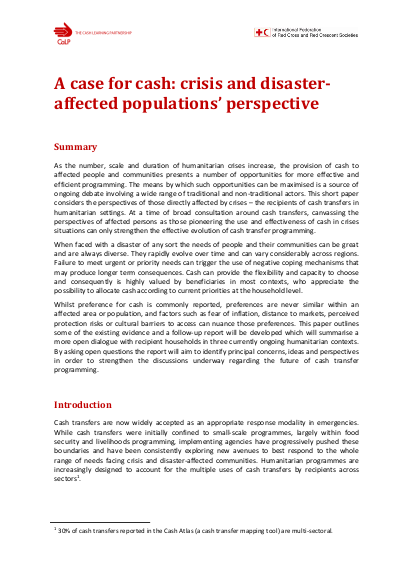
As the number, scale and duration of humanitarian crises increase, the provision of cash to affected people and communities presents a number of opportunities for more effective and efficient programming. The means by which such opportunities can be maximised is a source of ongoing debate involving a wide range of traditional and non-traditional actors. This short paper considers the perspectives of those directly affected by crises – the recipients of cash transfers in humanitarian settings. At a time of broad consultation around cash transfers, canvassing the perspectives of affected persons as those pioneering the use and effectiveness of cash in crises situations can only strengthen the effective evolution of cash transfer programming.
When faced with a disaster of any sort the needs of people and their communities can be great and are always diverse. They rapidly evolve over time and can vary considerably across regions. Failure to meet urgent or priority needs can trigger the use of negative coping mechanisms that may produce longer term consequences. Cash can provide the flexibility and capacity to choose and consequently is highly valued by beneficiaries in most contexts, who appreciate the possibility to allocate cash according to current priorities at the household level.
Whilst preference for cash is commonly reported, preferences are never similar within an affected area or population, and factors such as fear of inflation, distance to markets, perceived protection risks or cultural barriers to access can nuance those preferences. This paper outlines some of the existing evidence and a follow-up report will be developed which will summarise a more open dialogue with recipient households in three currently ongoing humanitarian contexts. By asking open questions the report will aim to identify principal concerns, ideas and perspectives in order to strengthen the discussions underway regarding the future of cash transfer programming.
